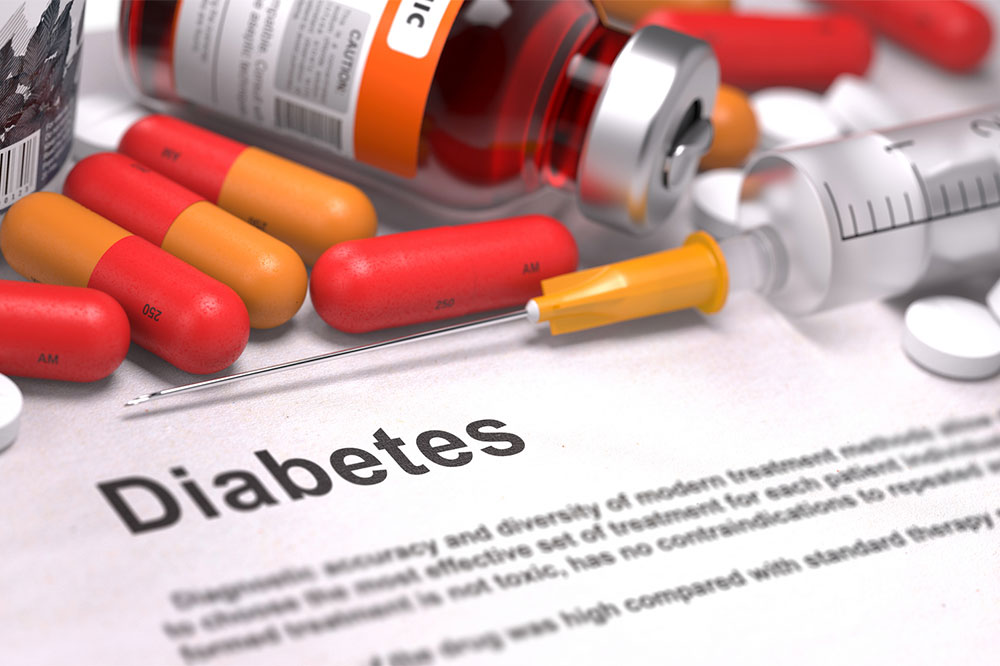7 Treatments For Managing Type 2 Diabetes
Type 2 diabetes is a long-term or chronic condition in which the body cannot use insulin properly, which causes a spike in blood sugar levels. According to the Centers for Disease Control and Prevention (CDC), about 1 in 10 Americans have diabetes, and approximately 90-95% of them are diagnosed with this type. In addition to taking prescribed oral treatments, one can try these alternative treatments and methods to manage type 2 diabetes.

Various treatments to help manage type 2 diabetes
Monitor the blood sugar
An important part of diabetes treatment is keeping a close check on the blood sugar levels. Regularly monitoring blood glucose tells the patients and healthcare providers how well the foods, exercise, and other treatment options are working. It also helps doctors to adjust the dose of oral treatments. Blood sugar is often measured at home with a small device called a blood glucose meter, which requires just a drop of blood. Most type 2 diabetes patients need to check their blood sugar once or twice per day; however, some people need to check more often. People whose blood sugar levels are under control may need to check it less frequently.
Regular exercise
Being physically active is an effective treatment for type 2 diabetes. It helps regulate blood sugar levels and maintain a healthy weight. Furthermore, it helps those with the disease cope with stress and boosts their mood. People with type 2 diabetes must indulge in both aerobic and resistance exercises. Aerobic exercise includes walking, running, swimming, and biking. Adults can pick any activity they enjoy and perform it for 30 minutes a day a few times a week, or at least 150 minutes per week. Resistance exercise includes weight lifting, yoga, and calisthenics and aims to increase your strength, balance, and ability to do daily activities. Adults should aim for two to three sessions of this type of exercise per week.
Healthy eating
No specific meal plan can cure diabetes. However, it’s crucial to eat a wide variety of nutritious foods to manage the condition. These include whole grains, such as brown rice, quinoa, oatmeal, and whole-wheat bread, fruits and vegetables such as apples, avocados, oranges, spinach, kale, and broccoli, fatty fish packed with omega-3 fatty acids, such as salmon, tuna, trout, and herring, lean meat, such as white meat from chicken and turkey, legumes such as beans and peas, and unsalted nuts and seeds. A regular schedule for meals, healthy snacks, and smaller portion sizes can help one control blood sugar efficiently.
Avoiding certain foods
While some foods are healthy, there are others that can cause a spike in blood sugar levels. So, they must be limited or completely avoided. This list includes foods rich in trans-fats, such as margarine, french fries, microwave popcorn, donuts, and frozen pizzas, sugar-rich foods and beverages such as fruit juices, sodas, candies, and cakes, processed and fatty meats such as bacon, hot dogs, and fatty cuts of beef and pork, saturated fats, such as foods containing palm oil and coconut oil, and salty foods.
Quality sleep
Getting sufficient, good quality sleep is important to keep blood glucose levels in check. The length of time one sleeps and the quality of their sleep affects their A1C levels. Also known as the hemoglobin A1C or HbA1c test, the A1C test measures the average blood sugar levels over the past 3 months. Studies show that improving sleep quality can lower A1C levels. Those struggling to sleep should follow proper healthy sleeping habits, such as going to bed at the same time and waking up at the same time, avoiding caffeine after noon, and creating a dark, quiet, and cool ambiance before going to bed.
Reduce mental stress
While psychological stress is not responsible for type 2 diabetes, it can make the disease worse. Studies have found that stress causes the body to produce certain hormones that impact its ability to regulate the amount of sugar in the bloodstream. Furthermore, it can make the person indulge in unhealthy habits, such as overeating, which can aggravate the disease. A great way to lower mental stress is to practice relaxation techniques, such as yoga, meditation, tai chi, or deep breathing exercises. All relaxation techniques work differently and an individual must choose and regularly practice techniques that work best for them.
Home remedies
Home remedies can complement an individual’s diabetes treatment. One of the most common natural remedies for type 2 diabetes is aloe vera. The gel from aloe vera leaves contains lots of active phytosterol compounds, which can enhance glucose storage and utilization. This helps reduce blood glucose levels and improve hemoglobin A1C. To benefit from aloe vera, one can drink the juice of the pulp or add it to a smoothie. Another popular home remedy is apple cider vinegar. Taking two tablespoons of ACV before bedtime helps lower morning fasting blood sugar. It’s also a good idea to take one-two tablespoons of ACV with meals, as it helps reduce the glycemic load of a carbohydrate-rich meal.